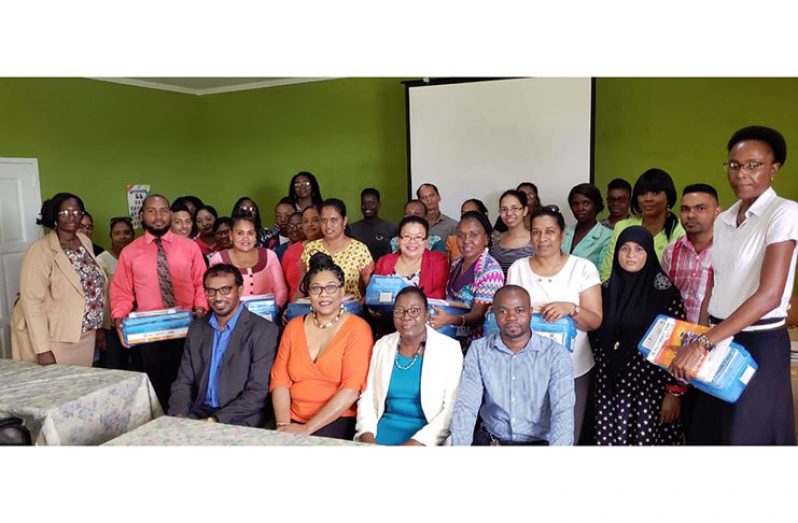ROBOTIC Kits were donated to 14 secondary schools in Region Three (Essequibo Islands-West Demerara) to facilitate practical learning and application of cross-cutting concepts helping to develop higher level learning and problem-solving skills.
The event was held recently at the Region Three Department of Education boardroom.
This was as a result of the collaboration between the Region Three Chambers of Commerce and Industry (R3CCI), the Region Three Department of Education and STEM Guyana. The robotic kits were sponsored by ExxonMobil.
In May 2019, Science, Technology, Engineering, and Maths (STEM) clubs were launched in Region Three recently, enabling 28 schools to participate in the exciting and educational robotics projects.
According to President of R3CCI, Halim Khan, robotics is often used in clubs, after-school activities, and competitions to expose students to technology, engineering, maths, and science.
Khan explained that by exposing students to STEM and giving them opportunities to explore STEM-related concepts, they will develop a passion for it and hopefully pursue a job in a STEM field.
“In the 21st Century, scientific and technological innovations have become increasingly important as we face the benefits and challenges of both globalisation and a knowledge-based economy. To succeed in this new information-based and highly technological society, students need to develop their capabilities in STEM,” Khan noted.
Further, he explained that STEM education helps to bridge the ethnic and gender gaps sometimes found in maths and science fields.
“Initiatives have been established to increase the roles of women in STEM-related fields. STEM education breaks the traditional gender roles. In order to compete in a global economy, STEM education and careers must be a national priority. Each and every decision made uses an aspect of STEM to understand the implications,” the businessman said.




.jpg)










